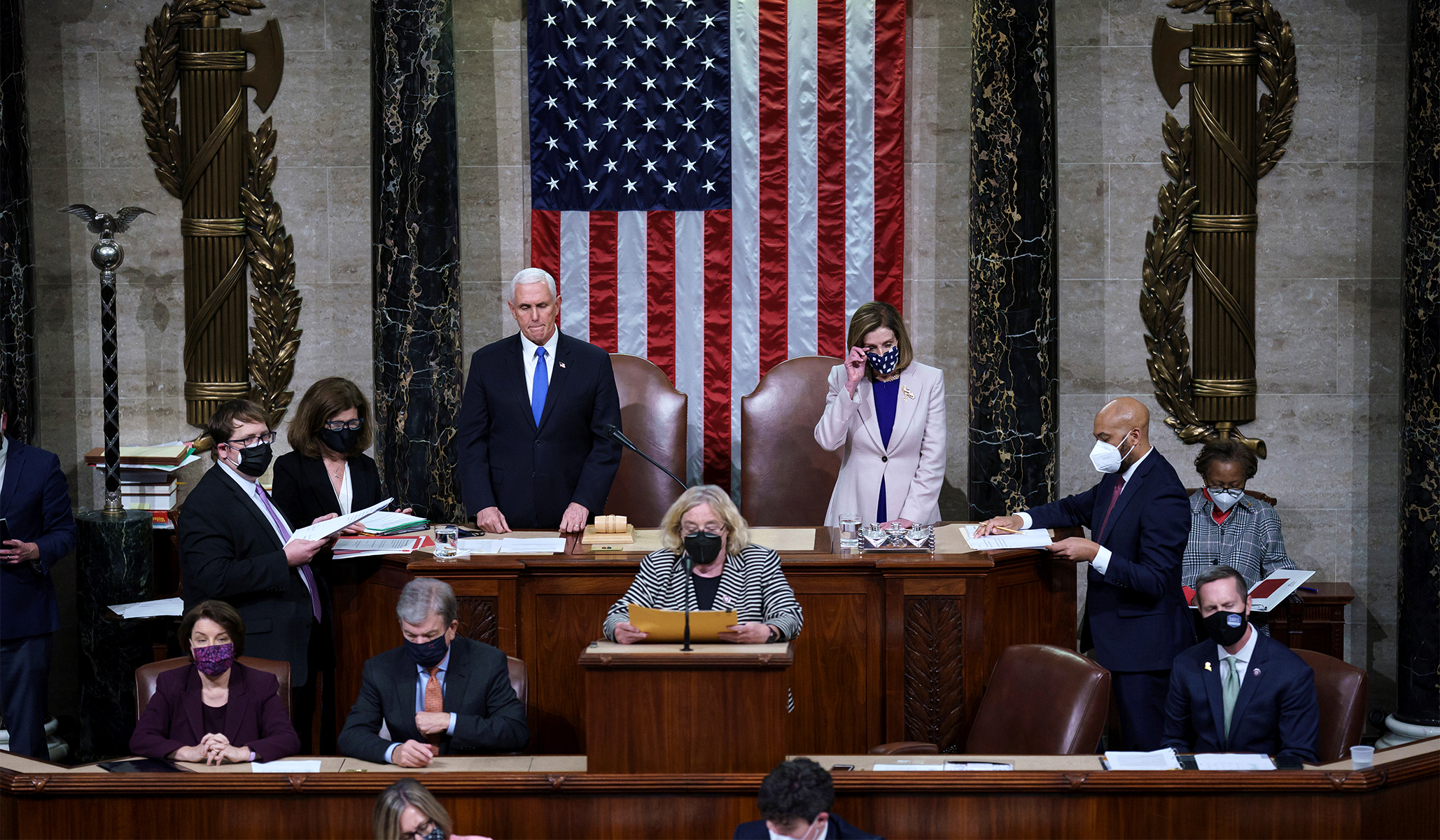I walked yesterday through Jane Mayer’s wrongheaded effort to smear conservatives who read the electors clause of Article II of the Constitution as giving a unique role to state legislatures in the selection of electors in presidential elections — the so-called “independent legislature doctrine.” As I detailed, the Supreme Court has held since 1892, and reiterated unanimously in 2020, that state legislatures have broad power over that selection, which could and historically did include legislatures selecting the electors themselves rather than conducting a statewide popular vote. There are two arguments that flow from this.
- One, which is entirely mainstream and respectable, is that laws passed by state legislatures to govern a presidential election cannot be rewritten or overruled by state courts, state executive officials, or the state constitution. That argument was the premise underlying the Supreme Court’s unanimous 2000 decision in Bush v. Palm Beach County Canvassing Board, and it was a hot issue in 2020 in cases in Pennsylvania, North Carolina, and Minnesota. There is significant, if not yet majority, support for this view on the Supreme Court. There are many conservative legal scholars and advocates who support it.
- The other, which is radical, dangerous, and in conflict with federal law, is that the plenary power of legislatures to make the rules and to choose electors instead of holding a popular vote means that a legislature can hold a popular vote and then decide after Election Day to change the rules and cast the votes itself if it does not like or trust the result. No federal judge has endorsed this view. It exists on the Trumpier fringes, but its support is decidedly marginal.
Mayer conflated these two very different arguments, misleading her readers. Election-law professor Rick Hasen, who seems to have been Mayer’s primary source on this point, has written his own column at Slate doing the same thing, for the evident purpose of making his readers believe that mainstream conservative legal thinkers — “white-shoe [Federalist Society] lawyers” — are plotting a “coup” in 2024 in which “arcane legal arguments about the awesome power of legislatures to run elections as they see fit” will result in state legislators’ overruling the legally cast votes of their own state’s people:
The 2020 fight over the independent state legislature doctrine was a close call. It would not be at all surprising to see at least five or perhaps all six conservative justices embrace the argument next time it comes before the court in a timely way. It’s easy to picture how this might play out in the next presidential election. Imagine that a state legislature sets forth general rules for conducting the 2024 election, but it does not provide every detail about how the election is run. Republican legislatures in states won by the Democratic candidate could seize on some normal election administration rule created by a state or local election administrator or some ruling from a state court, and argue that implementation of the rule renders the presidential election unconstitutional, leaving it to the state legislature to pick a different slate of electors. Now maybe the courts won’t bite on this theory — in 2020, Justice Kavanaugh seemed wary of the argument because it came very late in the process. . . . [Emphasis added.]
The potential coup next time will come in neatly filed legal briefs and arguments quoting Thomas Jefferson and wrapped in ancient precedents and purported constitutional textualism.
In fact, Kavanaugh was considering no such argument. The argument in the Pennsylvania case was the first one — that the state court’s openly rewriting the law to count ballots arriving outside the statutory deadline meant that those ballots were not legal votes, and should be thrown out by a court in an election contest. (Or, given that the case was brought before the election, not counted in the first place.) The result that the Pennsylvania Republicans asked for, and that the Court’s conservatives met with varying degrees of enthusiasm, was to have Pennsylvania award the state’s electors to whichever candidate got more legal votes in the election. That is, as Hasen knows perfectly well, how election contests work in courts all the time, and I do not understand him to argue that well-established election contest procedures are improper.
Only when things reached the desperation stage post-election — after it was clear that the illegally counted late-arriving ballots were not enough to change the outcome anyway — did Donald Trump start pushing in earnest for the state legislature to get involved. None of the justices offered any support for that effort, which ultimately failed after no state legislature attempted it and Congress certified the electoral votes. In fact, the Court did not even revisit the legal question raised by the Pennsylvania ruling after it was too little, too late to make a difference in the presidential race, even though Justice Clarence Thomas rightly argued that it should have done so in order to prevent any such controversy from recurring in 2024.
It is true, of course, that the paucity of support from the conservative legal mainstream for Trump’s clown-show alternate-electors plot did not prevent him from pressuring political actors to go along with it. We should be concerned about a recurrence of that, which is why we ought to oppose proposals (thus far not enacted) in states to give legislatures the power to overrule the outcome of a popular vote, and why we should revise the Electoral Count Act to make challenges harder to get through Congress. But by making out conservative Supreme Court justices as conspirators in a theory none of them has endorsed, and by confusing that theory with a different one, Hasen is selling his readers a false bill of goods.
